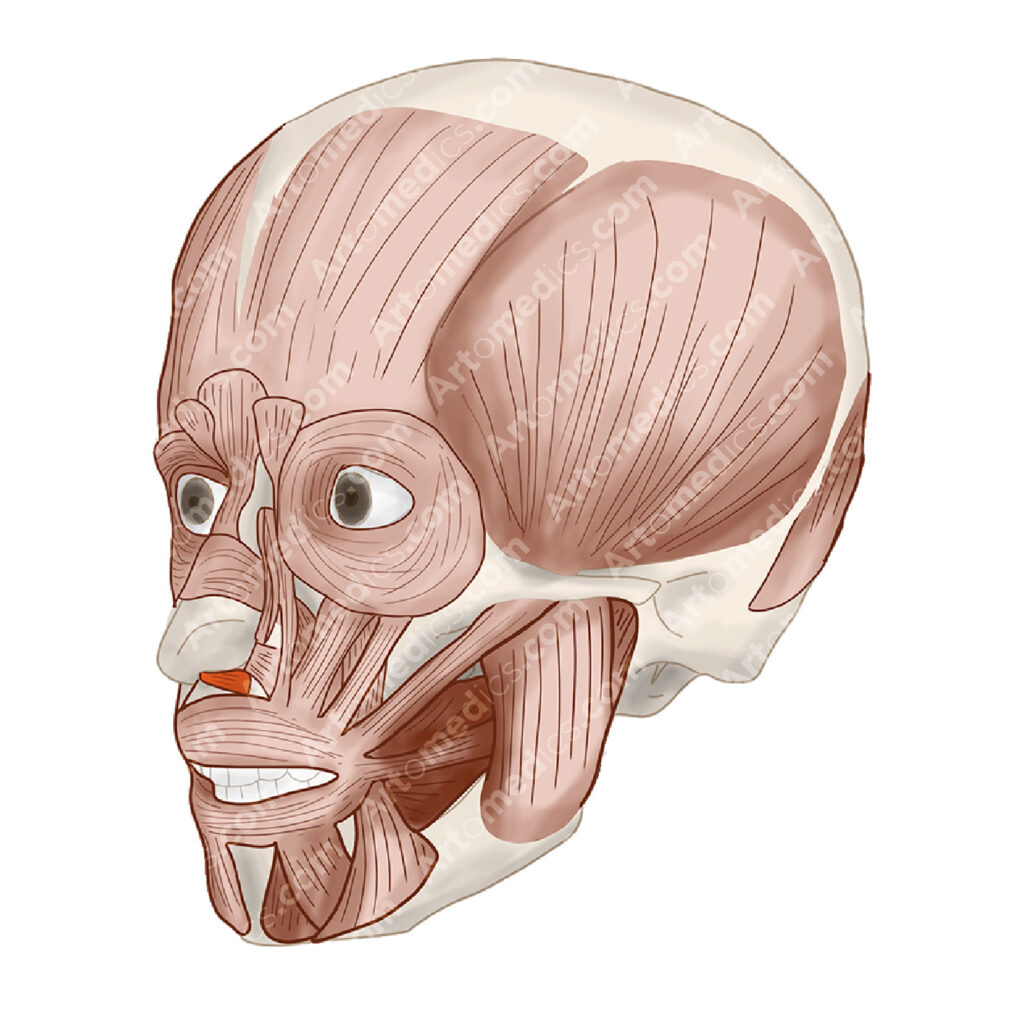Depressor Septi Nasi Muscle: letting the air flow through your nose
If there’s a bad smell, and you can’t pinch your nose, you’ll try to close your nostrils using the Depressor Septi Muscle.
But not just that, if you get a nose job, how would the surgeons know where to put back your nose? Well, locating the Depressor Septi Nasi Muscle, surgeons can make sure the nose is at the right place.

| Actions | Lowers nasal septum, closes nostrils, moves nose apex with upper lip movement |
| Origin | Maxilla bone, in the incisive fossa |
| Insertion | Nasal septum and alar part of nasalis muscle |
| Innervation | Facial Nerve (VII) via buccal nerve |
What does the Depressor Septi Nasi mean?
Septum means wall and Nasi speaks of the nose. Depressor refers to the action of this muscle of lowering. Now all together, Depressor Septum Nasi is a muscle that lowers the wall of your nose.

What does the Depressor Septi Nasi Muscle do?
This muscle, along with it’s ligament, act as air valves, controlling the air flow of the nose in breathing and it’s involved in various facial expression where you pull down your nose tip with your upper lip and constricting your nostrils. The Depressor Septi Nasi muscle can be involved in a smiling deformity, since it’s connected to the upper lip.
Depressor Septi Nasi surgery and Rhinoplasty
With it’s intimate relationship to the nose, this muscle is involved in Rhinoplasty (or nose job) surgeries, it is often used to locate the exact spot to put your nose back into place. Different approaches in correcting the nasal septum have effects in this muscle, affecting facial expressions as a whole, as explored in this article.
Some patients get botox injections in the Depressor Septi Nasi with the purpose of lifting the nose tip when they smile.
The Depressor Septi Septi’s has a role regulating Nasal Air Flow
References
Standring, Susan. Gray’s Anatomy: The Anatomical Basis of Clinical Practice. , 2016. Print.

Leave a Reply